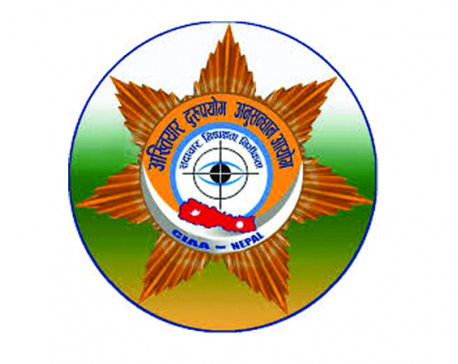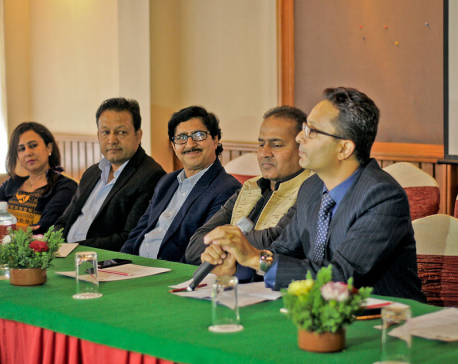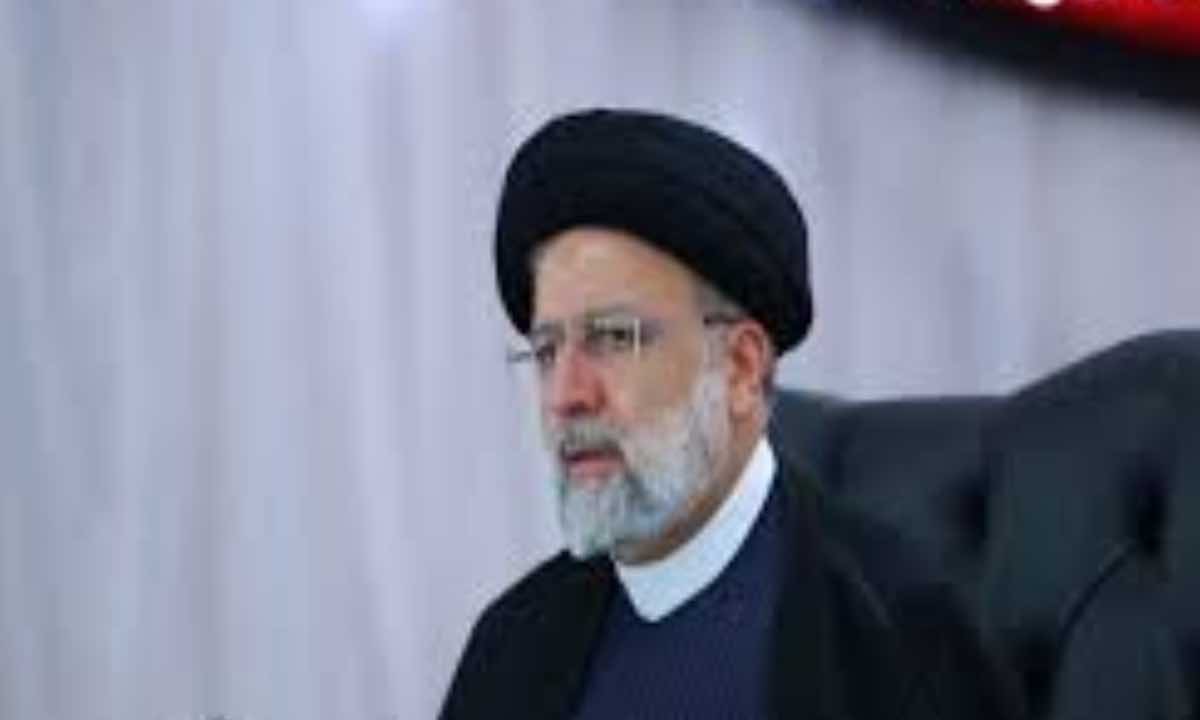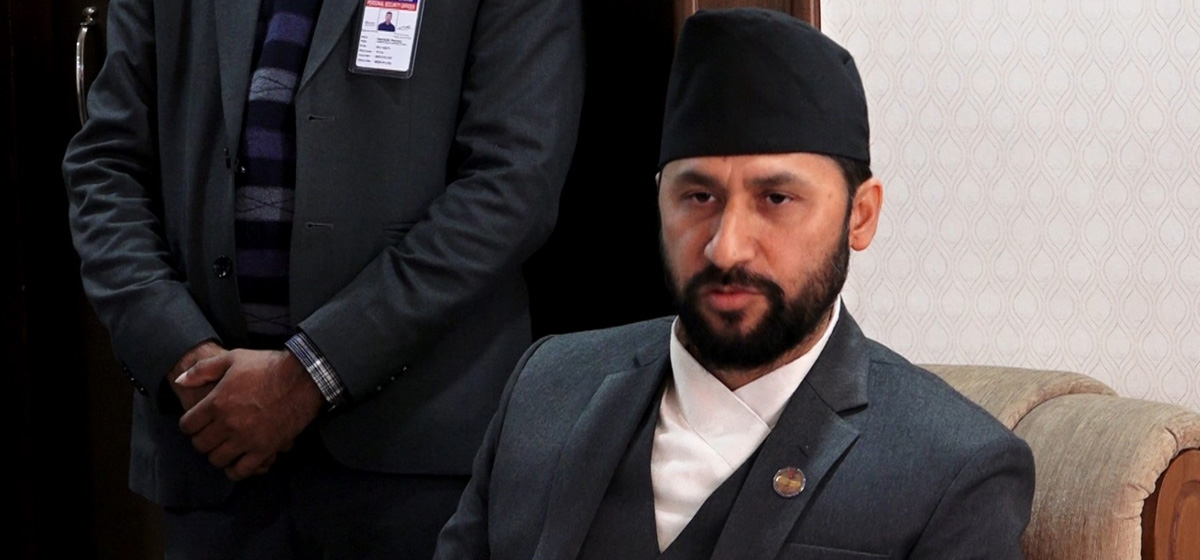
OR
Opinion

With the unfolding of high voltage “fake refugee scandal” corruption or rather anti-corruption cacophony is out there in the streets, in the parliament and in the media. In fact, it is the talk of the town. The noise is so deafening that it has lost coherence. There are charges and counter-charges. In the parliament, charges like “saixik mafia ko bhauju” and counter charges like “misogynic remarks” and counter-counter charges like “corruption has no links with gender” could be heard. As a protest measure, in the full view of live screening, an MP took off his clothes during a parliamentary session, while, on the same day, someone lodged the illicit enrichment complaint against him at the CIAA. Meanwhile, the civil society is busy out on the street holding placards and demonstrating public rallies without being sure whether they are for or against government actions or rather inactions.
It is said that in a democratic set-up, anti-corruption normally becomes the agenda of the opposition party. But in an authoritarian regime, it becomes the agenda of the government in power. When PM Dahal says, “this is only a trailer; not the full movie” similar to past US President Ronald Regan saying, “you have seen nothing yet” and the opposition party demands “release of the full movie” with “entrance tickets booked in advance”, definitely, there is something grossly mistaken about our method of fighting corruption. Often, it gives an impression of what Daniel Kaufmann, the then World Bank consultant, called, “fighting corruption for the sake of fighting corruption”.
Nepal’s history of corruption is perforated with various scandals of different scales ranging from notorious Carpet Scandal during the Panchayat days to the case of outright buying and selling of MPs and parliamentary horse trading during multiparty days to Sudan Scandal, Lalita Niwas scam etc in the present day federal, democratic republic Nepal. I am still muffed by the ideas like had there not been Sudan Scandal we wouldn't have had the first CA elections or had Lok Man Singh Karki not been appointed as the CIAA Chief, we wouldn't have had the second CA elections. I ask the question: Could the fake refugee scandal be related to our last elections?
On 11 April, a national daily, Annapurna Post had a special pull out of 100 corruption cases from 77 districts of Nepal.
The fundamental flaw that I see in our approach to anti-corruption is looking at the leaves in the branches rather than the root (cause), which means missing the bigger picture of the forest. Looking into the branches and leaves is looking into discrete isolated cases of corruption. The micro perspectives on understanding leaves may be helpful in understanding tree(s) with their visible and invisible “deep seated roots” and “spreading out branches” but this will lead us nowhere to understanding the big picture of the forest, rather the jungle of corruption out there.
There is a famous line in corruption studies: You can take away corruption from politics but you cannot take away politics from corruption. In the jungle of corruption politics becomes corruption and corruption becomes politics. Let us have a sample of recent cases:
In the national elections held in November last year, Mr UpendraYadav from JSP was badly defeated by Mr CK Raut from Janamat Party. In response, Mr Yadav had a political maneuvering – strategically promoted his colleague Mr Ram Sahaya Yadav to the post of the vice president allowing him to vacate his seat in Bara-2 constituency so that he can have another round of fight in the by-elections. Mr Yadav contested the elections and got elected, again with his strategic moves. He now holds the chair of the parliamentary committee on State Affairs and Good Governance. That is basically a parliamentary anti-corruption oversight body. Legally speaking there is nothing wrong with Mr Yadav; morally speaking, it is questionable.
Earlier, leaders like these used to contest elections from multiple constituencies. This is to diversify their electoral risks. With the banning of this system, we now have tourist leaders with fixed voters. This is a joke on voters. They also have a PR system to guarantee a kind of permanent positioning in the parliament. Corrupt electoral systems produce corrupt leaders.
What about the much media hyped RSP action against Mr Dhaka Kumar Shrestha over the leak of audio-tape involving a Rs 20 million deal? The party immediately sacked Mr Dhaka Kumar, annulled his parliamentary membership. In return, the party had a big public applause. In fact, I am confused between their press meetings and political gatherings. With the Supreme Court issuing a stay order against party decision, there must be a mulling now on legality of their action. If this is a clear case of corruption, the issue should have been filed at the CIAA and subjected to its investigations and actions. In a haste to control damages and gain quick public credibility, the party, so much vocal against corruption, has failed despairingly. In another instance, their smart lady MP, Sumana Shrestha is reported suggesting in the House on amendment to anti-corruption bills, that National Vigilant Centre (NVC) should look into petty corruption cases (frying small fishes) and the CIAA into grand corruptions (frying big fishes). Her idea is so immature and childish. Fundamentally, she had missed that this very bifurcation of anti-corruption mandates, instituted during monarchy-led Panchayat days, is one of the root causes of spiraling corruption in Nepal. She should have read, at least, the Supreme Court verdict, issued in September 1996 over jurisdictional conflict between NVC and the CIAA. By the way, there are over a dozen anti-corruption agencies (literally, a kind of jungle) looking after various facets of corruption.
Let me end this writing with a conclusive note. The basic problem with corruption in Nepal is that we have failed to read political corruption – a corruption jungle out there – and pre-occupied with studying leaves and trees of corruption. Remember, corruption could be very much political corruption. Already there are sounds coming this scam is to “kill democracy” or “political vendetta against CPN-UML” and political heads of three bigs, who often do not see eye-to-eye each other, are having discrete, hurried, close door meetings. Remember Adam Smith saying when two business people meet, they conspire to work against the third?
You May Like This
_20201014060614.jpg)
Nepal abstains from voting as UNHRC adopts resolution against Sri Lanka's human rights record
KATHMANDU, March 23: Nepal has chosen to abstain from voting in the United Nations Human Rights Council on a resolution... Read More...

‘CIAA should be allowed to investigate corruption in private sector’
KATHMANDU, July 27: The Commission for the Investigation of Abuse of Authority (CIAA) has said that it should be allowed... Read More...

Nepal Media Society to run campaign against corruption
KATHMANDU, September 6: The umbrella organization of the Nepali print and electronic media, Nepal Media Society has decided to start... Read More...






Just In
- Wind storm likely at a few places of Koshi and Sudurpaschim
- EVs adoption in Nepal surge in Nepal with government support measures
- Mayors' Forum urges Finance Minister Pun to settle electricity dues
- By-Election: Voting underway in Ilam-2 and Bajhang-1(a)
- Save the Children report highlights severe impact of air pollution on children
- NATO Serving as a Catalyst to Fuel Violence
- Home Minister denies any delay in providing relief to wildfire and fire victims
- Ties with Tehran














Leave A Comment